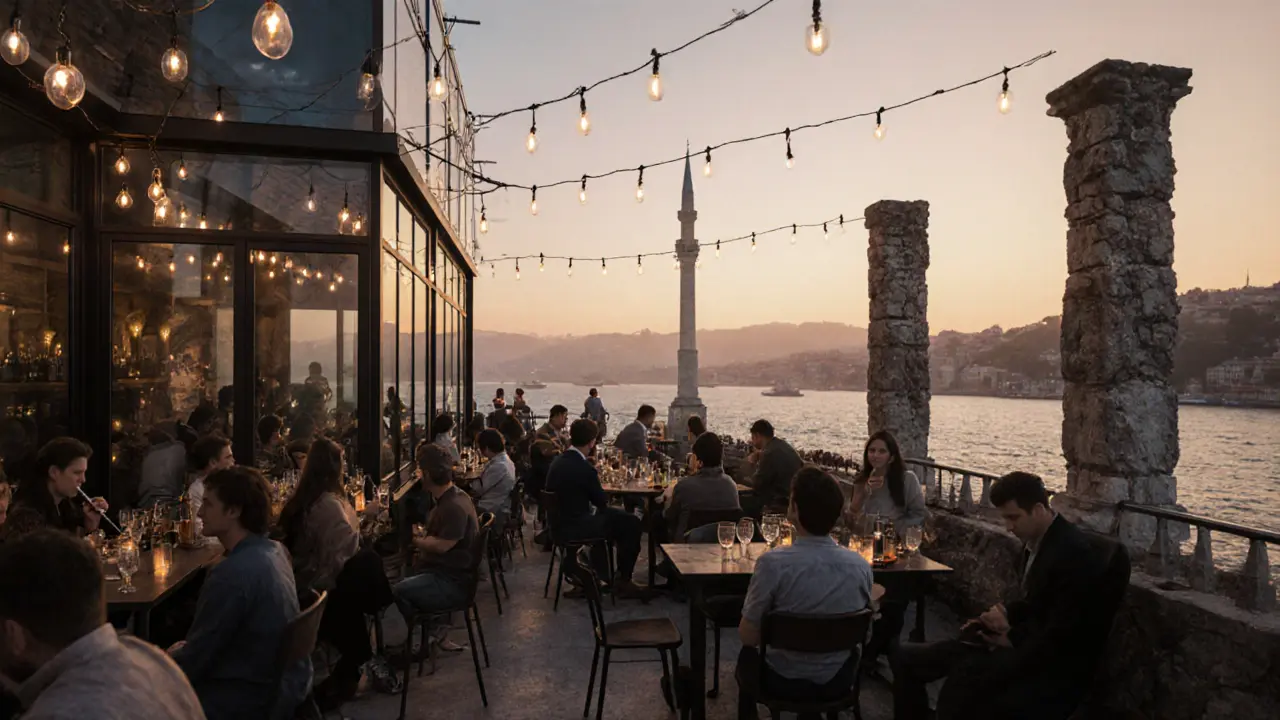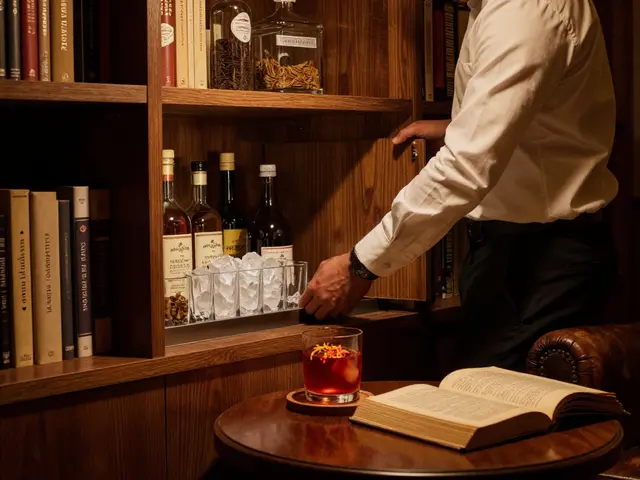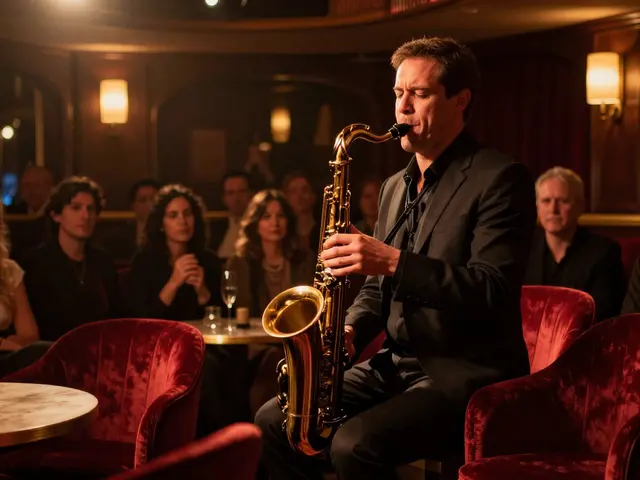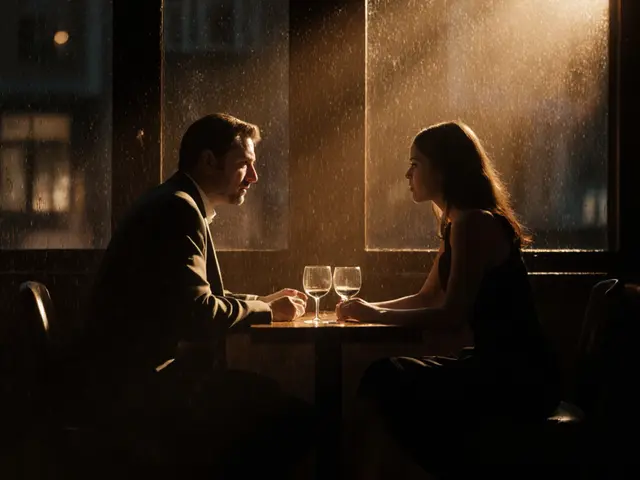When the sun sets over the Bosphorus, Istanbul doesn’t sleep-it transforms. The city’s nightlife isn’t just about drinking or dancing. It’s a living tapestry woven from centuries of music, migration, rebellion, and rhythm. You can sip raki on a rooftop where Byzantine ruins peek through modern glass, then walk five minutes to a basement club where electronic beats pulse under Ottoman arches. This isn’t just a party scene. It’s history with a bassline.
Where the Past Meets the Pulse
Beyoğlu, especially the stretch along İstiklal Caddesi, is the heart of modern Istanbul nightlife. But look closer. The old tram still clatters past 19th-century neoclassical buildings that once housed French consulates and Armenian bookshops. Now, they’re home to jazz lounges, craft cocktail bars, and underground art galleries. The building at No. 170 used to be a 1908 Greek Orthodox school. Today, it’s Bar 1908, where the cocktail menu is inspired by Ottoman spice routes. Try the Yasemin-jasmine-infused gin, lemon verbena, and a drop of black sesame syrup. It tastes like a memory you never had.
Down the alley, in a former 1880s printing press, you’ll find Arkaoda. No sign. Just a red door. Inside, the walls are lined with vintage Turkish records and protest posters from the 1970s. The music? A mix of Anatolian folk remixed with techno. Locals call it the city’s best-kept secret. Tourists miss it because they’re too busy taking selfies with the giant pink cat statue on İstiklal. That cat? It’s a symbol of resistance. The locals say it watches over the night.
From Kebabs to Basslines
Most visitors think of Istanbul’s nightlife as a string of clubs. But the real rhythm starts with food. Around midnight, when the clubs are still warming up, the street food stalls in Kadıköy come alive. Head to the fish market side of the Bosphorus. You’ll find men grilling sardines on charcoal, serving them with pickled red onions and a squeeze of lemon. A plate costs 25 Turkish lira-less than $1. Eat it standing up, next to a group of university students debating philosophy or a retired sailor recounting his last voyage to Piraeus.
Then there’s the meze culture. In the 1980s, meyhanes-traditional Turkish taverns-were mostly male-only spaces where men drank raki and ate small plates of eggplant, cheese, and stuffed grape leaves. Today, they’ve evolved. Çiya Sofrası in Kadıköy doesn’t just serve meze. It serves 80 different kinds, many from forgotten villages in southeastern Turkey. Order the hünkar beğendi-lamb stew over smoky eggplant purée. Pair it with a glass of boza, the fermented millet drink that’s been drunk in Istanbul since the 1400s. It’s sweet, thick, and tastes like childhood in a bowl.
Where the Music Lives
Music is the soul of Istanbul’s night. You won’t find just one sound. You’ll find layers. On any given Friday, you can hear:
- Live ney flute in a Sufi ceremony at the Galata Mevlevi Lodge
- Armenian folk songs at a hidden bar in Kumkapı
- Deep house in a converted synagogue in Karaköy
- Reggaeton mixed with bağlama at a rooftop in Moda
Asmalı Mescit in Beyoğlu is the oldest live music venue in the city, dating back to 1968. It’s small, dim, and smells like old wood and cigarette smoke. The owner, Mehmet, has been booking acts since 1983. He doesn’t care if you’re a tourist. He cares if you listen. He once told me, “If you clap too loud, you’re not here for the music. You’re here for the Instagram.”
On weekends, the basement of İstanbul Modern turns into a pop-up club called Sound of the Bosphorus. DJs spin tracks sampled from 1950s Turkish radio broadcasts-old love songs, news reels, even the call to prayer. One track, “Kara Gemi”, combines a 1972 sea shanty with a 2023 trap beat. It’s become the unofficial anthem of Istanbul’s new nightlife generation.
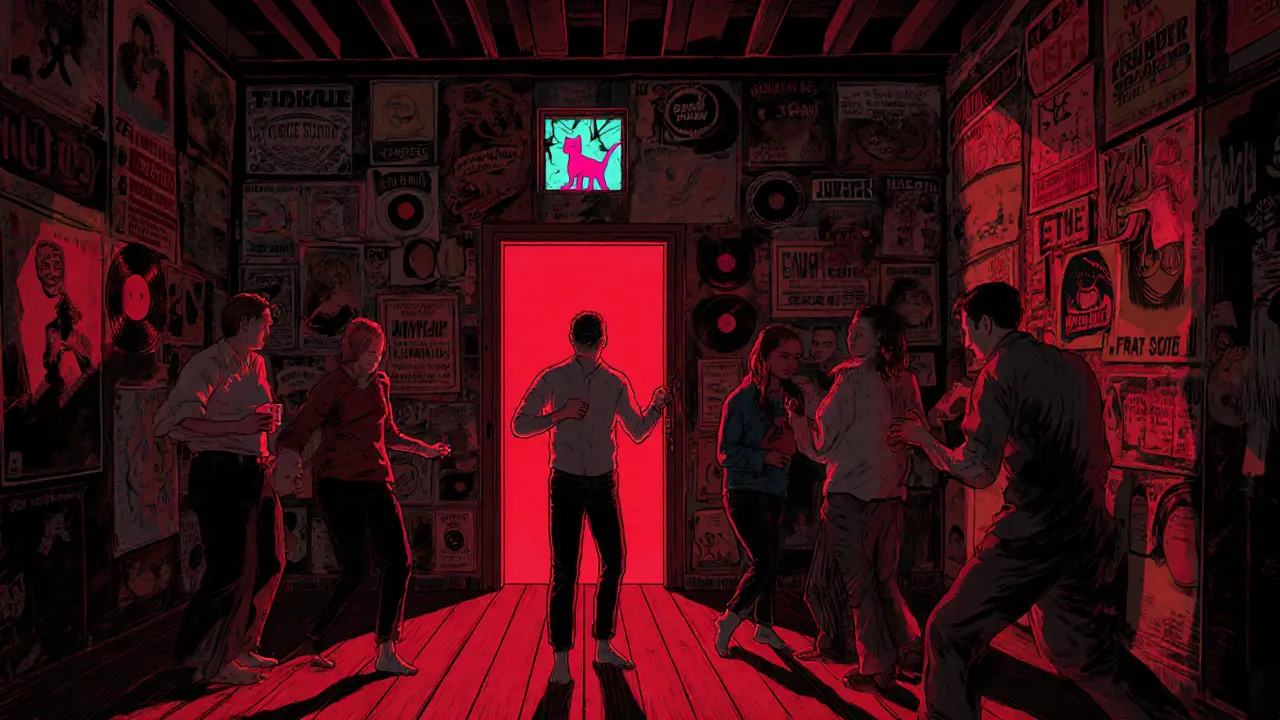
The Rules You Won’t Find in Guidebooks
There’s no official dress code. But there are unspoken rules.
- Don’t wear flip-flops to a high-end bar in Karaköy. You’ll be turned away, not because of the shoes, but because you’re signaling you don’t belong.
- Don’t ask for vodka at a meyhane. It’s like asking for ketchup at a sushi bar. Raki is the drink. Water is the companion. Ice is optional.
- Don’t take photos of the dancers at a whirling dervish show unless you’re asked. It’s not a performance. It’s prayer.
- Don’t leave before 3 a.m. If you do, you’re missing the real shift-the one where the city exhales and the locals finally relax.
And one more: never assume Istanbul’s nightlife is safe just because it’s busy. The city is generally safe, but pickpockets target distracted tourists near the Galata Tower after midnight. Keep your phone in your front pocket. Don’t flash cash. And if someone offers you a “free” drink from a stranger, walk away. It’s not hospitality. It’s a trick.
Where to Go When You’re Tired of the Crowds
Not everyone wants to dance till dawn. Some nights, you just want quiet. Here’s where the locals go when they need to escape the noise:
- Çırağan Palace Rooftop - Open only to hotel guests, but you can sneak in if you book a 100 lira tea set at 11 p.m. The view of the Bosphorus is silent. The city lights blink like stars fallen to earth.
- Yusuf’s Bookshop - A tiny shop in Cihangir that stays open until 2 a.m. They serve Turkish coffee in ceramic cups and have a shelf of banned books from the 1980s. No Wi-Fi. No music. Just silence and stories.
- Küçük Ayasofya Park - A hidden green space behind the Little Hagia Sophia. At night, it’s lit by lanterns. Couples sit on benches. Old men play backgammon. No one talks loud. It’s the closest thing Istanbul has to a midnight meditation garden.
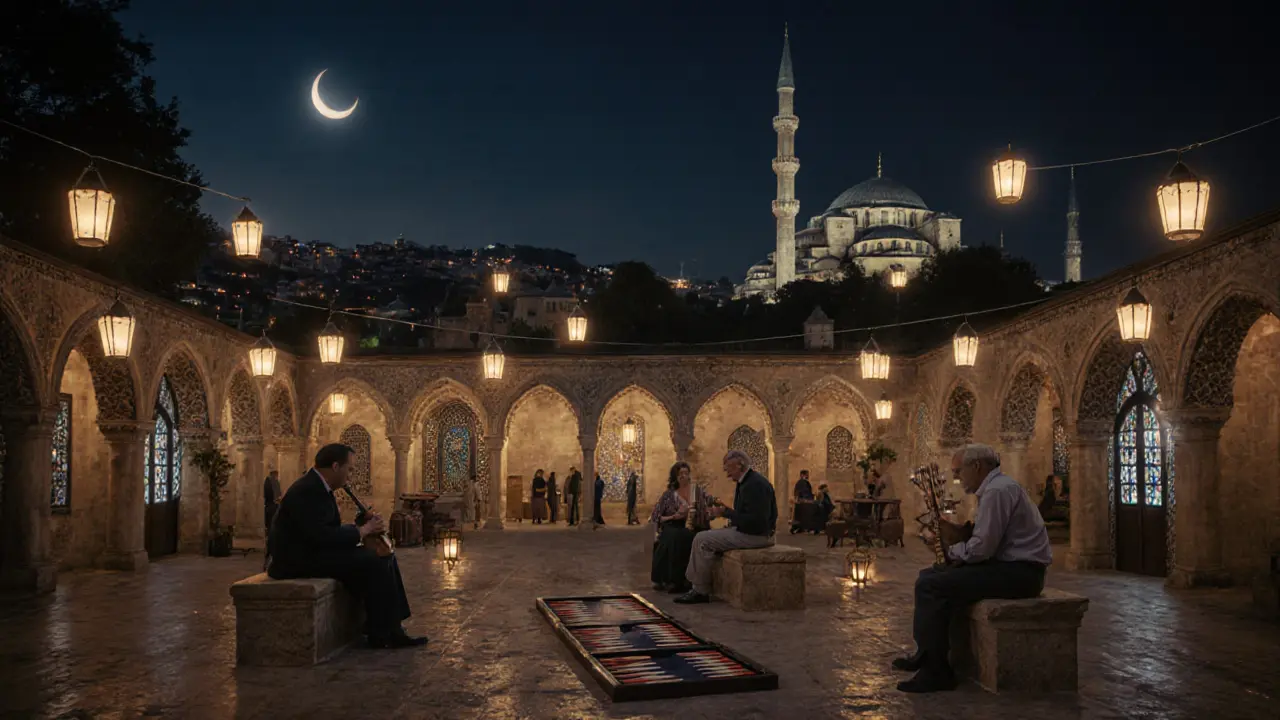
Seasons Change, the Night Doesn’t
Winter in Istanbul is cold. Rain drizzles off the rooftops. The wind howls through the Bosphorus. But the nightlife doesn’t shut down. It gets deeper.
In January, Çemberlitaş Hamamı turns into a nighttime music lounge after the steam rooms close. Patrons sip tea in silk robes while a single oud player performs in the corner. No one claps. No one takes photos. They just sit. Listen. Breathe.
Summer is different. The rooftops overflow. The clubs stretch into the early morning. But the most magical nights are the ones in late August, when the city celebrates the İstanbul Music Festival. For three nights, the Hagia Sophia’s courtyard becomes a concert hall. Classical Turkish music plays under the stars. Thousands sit on the ground. No one moves. No one speaks. For an hour, the city forgets it’s a metropolis. It remembers it’s a place where time bends.
What You’ll Remember
You won’t remember the name of the club where you danced till sunrise. You won’t remember the cocktail you ordered. You’ll remember the old woman who handed you a warm simit at 4 a.m. because she saw you shivering. You’ll remember the sound of the call to prayer drifting over the rooftops while the bass still thumped behind you. You’ll remember how the city didn’t feel like a tourist attraction. It felt like a living thing-breathing, changing, holding centuries in its chest.
Istanbul’s nightlife isn’t about chasing the next party. It’s about finding the quiet spaces between the noise. The spaces where history doesn’t end-it just gets louder.
Is Istanbul nightlife safe for solo travelers?
Yes, Istanbul is generally safe for solo travelers at night, especially in well-lit areas like Beyoğlu, Karaköy, and Kadıköy. But like any major city, pickpockets and scams exist. Avoid poorly lit alleys after midnight, don’t accept drinks from strangers, and keep valuables hidden. Most locals are friendly and will help if you look lost. Stick to busy streets and trust your instincts.
What’s the best time to visit Istanbul for nightlife?
Late spring (May-June) and early fall (September-October) are ideal. The weather is mild, the crowds are thinner than in summer, and the clubs are fully active. Summer (July-August) is lively but packed and hot. Winter nights are quieter but more intimate-perfect for cozy meyhanes and rooftop tea. Avoid Ramadan if you want full club scenes; many venues reduce hours or close early.
Do I need to speak Turkish to enjoy Istanbul’s nightlife?
No, but knowing a few phrases helps. Most bartenders and club staff in tourist areas speak basic English. But in hidden spots like Kumkapı or Cihangir, a simple “Teşekkür ederim” (Thank you) or “Lütfen” (Please) opens doors. Locals appreciate the effort. And if you point to a menu item and smile, you’ll often get an extra meze for free.
What’s the legal drinking age in Istanbul?
The legal drinking age in Turkey is 18. You’ll need to show ID at most bars and clubs, even if you look older. ID checks are strict after midnight, especially in tourist-heavy zones. Alcohol sales are banned after 10 p.m. in convenience stores, but bars and restaurants can serve until closing. Don’t try to buy alcohol on the street after curfew-it’s illegal and risky.
Are there any cultural taboos I should avoid at night?
Yes. Avoid public displays of affection beyond a handshake or arm around the shoulder. Don’t take photos of people without asking-especially in religious or traditional spaces like meyhanes or Sufi gatherings. Never raise your voice or argue loudly in public. Turks value calmness. Also, don’t wear revealing clothes in conservative neighborhoods like Fatih or Üsküdar at night. It’s not illegal, but it draws unwanted attention.
Can I find vegan or vegetarian options in Istanbul’s nightlife?
Absolutely. Istanbul has one of the most vibrant plant-based scenes in the Middle East. In Karaköy, Hayat serves vegan meze with lentil balls, stuffed peppers, and walnut-based dips. In Kadıköy, Yayla has a full vegan menu with vegan raki cocktails. Even traditional meyhanes now offer vegan versions of classic dishes. Just ask: “Bitkisel menü var mı?” (Do you have a plant-based menu?)
What’s the average cost of a night out in Istanbul?
You can have a great night for under 500 Turkish lira ($15). A drink at a local bar: 40-80 lira. A full meze spread: 150-250 lira. A club cover charge: 0-100 lira (many have no fee until midnight). A taxi across the city: 120-200 lira. Skip the tourist traps on İstiklal. Head to side streets. That’s where the real value-and the real atmosphere-is.
If you want to feel Istanbul’s soul after dark, don’t just follow the crowd. Follow the music. Follow the smell of grilled fish. Follow the quiet laughter in a hidden courtyard. The city doesn’t shout. It whispers. And if you listen closely, it’ll tell you stories older than the mosques, sweeter than the raki, and louder than any beat.
